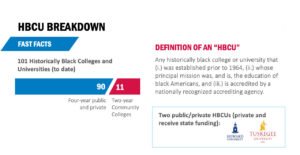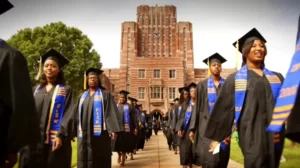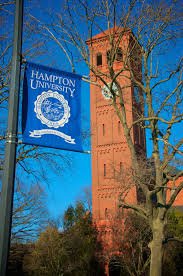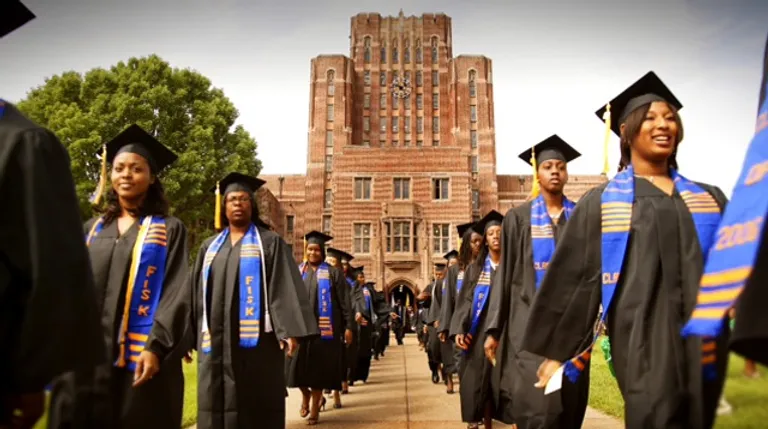HBCU with No application Fee are feasible, it’s a case of intensively researching and scouting the internet for information. Historically Black Colleges and Universities (HBCUs) are American higher education establishments that were founded prior to 1964 with the main objective of providing educational opportunities for the African American community. During an era of widespread racial prejudice and segregation, these institutions were essential in giving Black Americans access to higher education.
The summarized aim of Historically Black Colleges and Universities (HBCUs) is to provide access to quality higher education for African American students, fostering academic excellence, cultural preservation, and community leadership. HBCUs aim to create supportive environments that empower students, celebrate diversity, and contribute to the advancement of individuals and the broader society, also making available HBCU with No Application Fee. These institutions historically emerged to address racial disparities in education and continue to play a vital role in promoting inclusivity, social justice, and the development of future leaders.

Read also: 15 Cheapest Universities in Texas for International Students
These are the Basic ideology upon which HBCUs were established:
- Historical Perspective: African Americans were routinely denied admission to predominately white universities during the period of racial segregation, which gave rise to HBCUs. Cheyney University, the first HBCU, was established in 1837.
- Mission and Objective: Giving African American students access to higher education has been the main goal of HBCUs.
– Historically, HBCUs have played a significant role in developing academic excellence, addressing the particular difficulties Black communities experience, and cultivating leadership.
- Founding Values: HBCUs were established with the goal of giving African American students access to a top-notch education in a setting that would support their intellectual, social, and cultural development.
- Academic courses: Undergraduate and graduate degrees in a variety of subjects, including the humanities, sciences, engineering, business, education, and more, are offered by HBCUs.
- Benefits to Education: – A large proportion of African American professionals, such as physicians, attorneys, scientists, educators, and leaders in a variety of professions, have been produced by HBCUs.
- Cultural and Social Relevance: HBCUs have been instrumental in promoting and conserving African American history, customs, and culture. One important component of HBCUs’ influence has been the sense of community and cultural distinctiveness they have established.
- Notable Alumni: A large number of historically black colleges can point to notable alums who have significantly impacted society. Leaders in business, politics, the art, science, and civil rights are among them, this life changing opportunity is open to more registrants through the option of enrolling into HBCU with No Application Fee.
- Difficulties and Resilience: Despite facing difficulties, such as unequal funding, HBCUs have proven to be resilient and adaptive in their pursuit of offering high-quality education.
- Multilingual Student Body: Historically, historically black colleges (HBCUs) have accepted students of all racial and ethnic backgrounds, despite their founding as institutions for African American students. The student body at HBCUs is diversified nowadays.
- Government Assistance: In an effort to strengthen these institutions, the federal government provides Title III financing, among other program and also making HBCU with No Application Fee feasible to registrants.
- Sporting and Traditions: Homecoming festivities and other collegiate sporting events are important social and cultural phenomena, and HBCUs have a long history of doing so. aspiring students can apply through sports talents thereby making it possible to partake in HBCU with No Application Fee.
- Persistent Importance: HBCUs are still important in addressing educational gaps and giving students chances while highlighting the value of inclusivity and diversity in higher education.
Read also: Top 10 Soccer clubs in Canada, Their Stadiums and Sponsors
In conclusion, HBCUs have a long history of being essential to the advancement of knowledge, the development of cultural identity, and the production of leaders who have had a major impact on society. Their goal of tackling persistent issues and advancing diversity in higher education is still vital and creating an option for some students to apply to HBCU with No Application Fee.

Read Also: 15 Cheapest Universities in New Jersey for International Students
These are comprehensive information on HBCU with No Application fee
– Address: Hampton, Virginia
– Established in 1868
– Overview: Hampton University, sometimes known as “Home by the Sea,” is a private university with a lengthy past. It was founded to give recently liberated slaves access to education following the Civil War. With a focus on science and technology, Hampton University offers a wide variety of undergraduate and graduate programs. On the basis of applying to HBCU with No Application Fee, confirm from the school on the criteria to that effect.

– Address: Washington, D.C.
– Established in 1867
– Overview: Howard University is a notable HBCU and a prestigious private research university. It is renowned for its dedication to developing leaders across a range of industries. Especially well-known is Howard’s College of Medicine, which has been instrumental in the civil rights movement. On the basis of applying to HBCU with No Application Fee, confirm from the school on the criteria to that effect.
– Address: Tennessee’s Nashville
– Established in 1866
– Overview: Fisk University is a private liberal arts college renowned for both its robust academic offerings and its contributions to the arts. Fisk is home to the well-known a cappella group, the Fisk Jubilee Singers. The university has a long tradition of elevating African American accomplishments and culture. On the basis of applying to HBCU with No Application Fee, confirm from the school on the criteria to that effect.
-Address: Tougaloo, Mississippi
– Established in 1869
-Overview: With a history anchored in social justice and activism, Tougaloo College is a private, coeducational institution. It was the center of agitation and organization during the Civil Rights Movement, which made it extremely important. Tougaloo provides a range of undergraduate programs with a focus on education in the liberal arts. On the basis of applying to HBCU with No Application Fee, confirm from the school on the criteria to that effect.
Read also: Best 10 Diploma Courses for a Better Career in 2024
- Albany State University:
-Address: Albany, Georgia
– Established in: 1903
– Overview: Albany State University is a public HBCU with a commitment to academic excellence and community service. It is part of the University System of Georgia and offers a wide range of undergraduate and graduate programs. On the basis of applying to HBCU with No Application Fee, confirm from the school on the criteria to that effect.

- Philander Smith College:
-Address: Little Rock, Arkansas
– Established in: 1877
– Overview: Philander Smith College is a private, liberal arts institution affiliated with the United Methodist Church. It has a strong commitment to social justice and community engagement. The college offers a variety of undergraduate programs. On the basis of applying to HBCU with No Application Fee, confirm from the school on the criteria to that effect.
- Southern University and A&M College:
-Address: Baton Rouge, Louisiana
– Established in: 1880
– Overview: Southern University and A&M College is a part of the Southern University System. It is a comprehensive institution offering a range of undergraduate, graduate, and professional programs. Southern University has a strong focus on research and community outreach. On the basis of applying to HBCU with No Application Fee, confirm from the school on the criteria to that effect.
- Winston-Salem State University:On the basis of applying to HBCU with No Application Fee, confirm from the school on the criteria to that effect.
-Address: Winston-Salem, North Carolina
– Established in: 1892
– Overview: Winston-Salem State
University is a public institution known for its commitment to experiential learning, research, and community service. It is part of the University of North Carolina System and offers a variety of undergraduate and graduate programs. On the basis of applying to HBCU with No Application Fee, confirm from the school on the criteria to that effect.
Read also: Top 10 Colleges in Brampton Canada for International Students
- Bowie State University:
-Address: Bowie, Maryland
– Established in: 1865
– Overview: Bowie State University is a public university and one of the oldest HBCUs in the country. It has a diverse range of undergraduate and graduate programs. The university is known for its commitment to community engagement, research, and promoting student success. On the basis of applying to HBCU with No Application Fee, confirm from the school on the criteria to that effect.
- Claflin University:
-Address: Orangeburg, South Carolina
– Established in: 1869
– Overview: Claflin University is a private institution with a strong emphasis on liberal arts education. It is affiliated with the United Methodist Church and has a history of providing quality education to African American students. Claflin offers various undergraduate and graduate programs. On the basis of applying to HBCU with No Application Fee, confirm from the school on the criteria to that effect.
These HBCUs continue to have a major impact on the academic and cultural landscape of the United States because of their distinctive histories, strengths, and contributions to higher education.
Read Also: Julius Nyerere Fully-funded Masters Scholarship 2024
Criteria for Admission in HBCU
While historically black colleges and universities’ (HBCUs) admissions requirements can differ from one to the next, most of them take a mix of academic, extracurricular, and personal aspects into account, inclusive of enrolling into HBCU with No Application Fee. The following are typical requirements for HBCU admission:
Academic Performance:
High School GPA, Your high school grade point average (GPA) is usually taken into account by HBCUs as a measure of your academic standing. Course Rigor, Consideration may be given to the quality of your high school curriculum, which includes honors, AP, and IB courses.
Standardized Test Scores:
The admissions process at many HBCUs includes the use of standardized test results, including those from the SAT or ACT. On the other hand, a few HBCUs have implemented test-optional rules, giving students the option of not submitting test results at HBCU with no application fee.
Letters of Reference:
Some HBCUs might ask for letters of recommendation from instructors or other people who can vouch for your character, intellectual prowess, and likelihood of succeeding in college.
Personal Essays or Remarks:
HBCUs frequently ask for personal essays or statements in which you describe your objectives, past experiences, and plans to give back to the campus community.
Extracurricular Activities:
Participating in extracurricular activities like clubs, athletics, volunteer work, and leadership positions can bolster your resume and highlight your versatility.
Interviews (Optional):
Some HBCUs offer optional interviews, providing an opportunity for applicants to discuss their achievements, aspirations, and why they are interested in attending the university.
Read also: Study Abroad Discovery and Applications Platform | TC Global
Diversity and Holistic Review:
HBCUs often value diversity and conduct a holistic review of applications, considering factors beyond grades and test scores. Your unique experiences, background, and potential contributions to the university community may be taken into account.
Demonstrated Interest:
Expressing genuine interest in the HBCU, such as attending college fairs, campus visits, or outreach events, may positively impact your application.
Legacy Factor:
Certain historically black colleges may take into account candidates’ family history of attending the institution.
Special abilities or Achievements:
During the admissions process, special abilities, honors, or accomplishments in the arts, sports, or other extracurricular activities may be taken into consideration.
Admission Interviews (if available):
To determine whether a candidate is a good fit for the university, some HBCUs do in-person or virtual admission interviews.
It’s crucial to verify the particular admission requirements of the HBCUs that interest you, as they can have different guidelines and standards. Furthermore, HBCUs are renowned for offering caring and encouraging settings, and they frequently look for applicants who are dedicated to leaving a positive mark on the campus community.
Read Also: 5 Ways to Speed Up Your US Immigration Processing
The Shortcomings of HBCU
A variety of obstacles and deficiencies confront historically black colleges and universities, or HBCUs. These include constraints on infrastructure and technology, inequalities in resource availability, and financial hardship. HBCUs may have to deal with reduced graduation and retention rates, fewer endowments, and the effect of unfavorable stereotypes on student support and enrollment. The difficulty of hiring and developing faculty can have an impact on the caliber of instruction. Technology infrastructure might not keep up with the times, which would restrict research and educational opportunities.
Financial limitations may force certain HBCUs to offer a more limited selection of programs, which will affect their competitiveness. Changing demographics, rivalry for students, and the need to innovate to be relevant all add to the challenges these institutions face. Despite these obstacles, a large number of HBCUs show resiliency by means of partnerships, strategic initiatives, and continuous efforts to deliver high-quality instruction and support the growth of African American communities and students, inclusive of making it possible for applicants to apply to HBCU with No Application Fee.
Read also: Study Abroad Discovery and Applications Platform | TC Global
Conclusion
In a nutshell, historically black colleges and universities, or HBCUs, have been essential to the advancement of knowledge and development of African American leadership. These institutions face a number of difficulties, amidst making it possible for applicants to apply to HBCU with no application fee, they have had tremendous success regardless. The challenges HBCUs face are highlighted by resource inequalities, financial pressures, and the necessity to change unfavorable attitudes.
Nonetheless, HBCUs’ tenacity is evident in their continued attempts to correct errors. These organizations actively seek to dispel prejudices, improve academic assistance, and obtain funding. The mission of HBCUs is still centered on the dedication to offering high-quality education and supporting diverse communities by making available the merit of applying to HBCU with no application fee.
HBCUs continue to be essential to higher education, generating alumni who make significant contributions in a variety of disciplines, while they negotiate shifting demographics and work to stay relevant. The difficulties that historically black colleges and universities (HBCUs) confront highlight more general problems in the field of education, highlighting the significance of fair financing, diversity, and inclusive in determining the direction of American higher education. Historically black colleges and universities (HBCUs) are resilient institutions that have left a lasting legacy of leadership in the community, academic achievement, and retention of culture.
